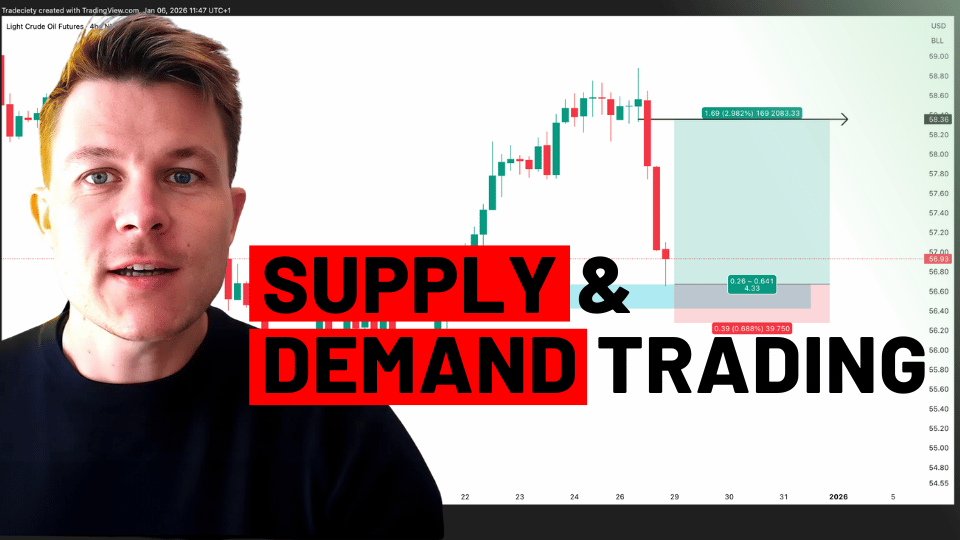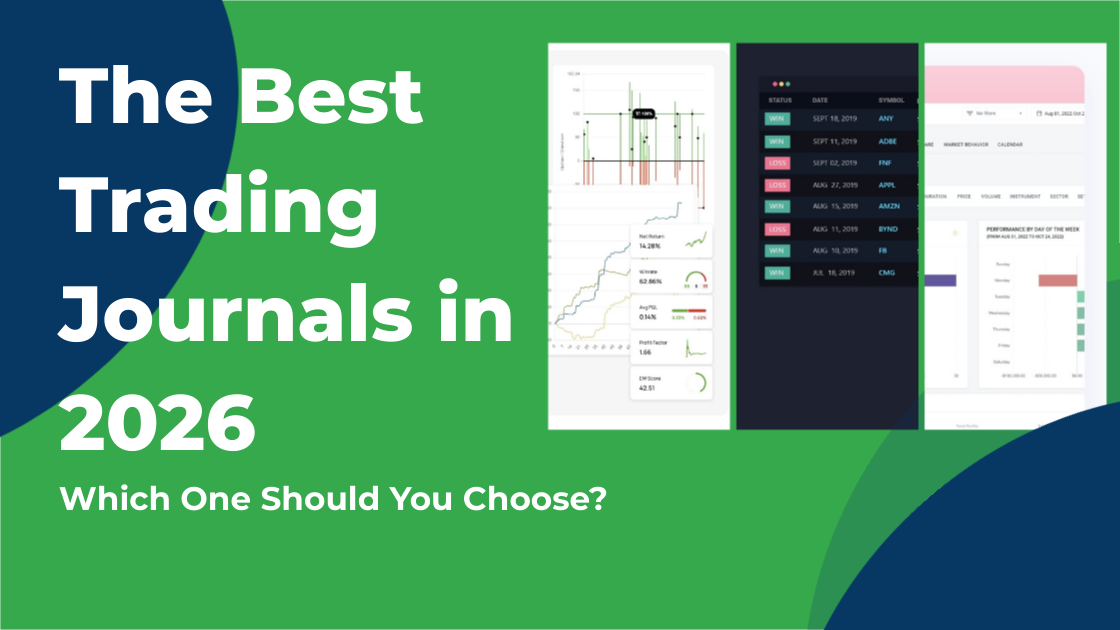Supply and Demand Trading in 2026
We have been trading supply and demand strategies for over ten years, and they have stood the test of time remarkably well. Supply and demand is...

 Wherever you look, you see brokers advertising huge possible gains through high leverage, trading gurus claiming to double their accounts year after year, and automatic trading robots that can make you a fortune while you enjoy your life without being tied to a screen all day long. Especially for new traders, these promises can be dangerous because they paint a false picture of how the reality of trading actually looks. But is it true that misleading advertisements, empty promises, and limitless potential gains are actually causing traders to trade more risky and create a gambling mentality? We came across two interesting studies that analyze brokerage data and the trading behavior of retail traders. The findings were surprisingly clear and we will shed light on three of the most important findings and what they mean for us as traders.
Wherever you look, you see brokers advertising huge possible gains through high leverage, trading gurus claiming to double their accounts year after year, and automatic trading robots that can make you a fortune while you enjoy your life without being tied to a screen all day long. Especially for new traders, these promises can be dangerous because they paint a false picture of how the reality of trading actually looks. But is it true that misleading advertisements, empty promises, and limitless potential gains are actually causing traders to trade more risky and create a gambling mentality? We came across two interesting studies that analyze brokerage data and the trading behavior of retail traders. The findings were surprisingly clear and we will shed light on three of the most important findings and what they mean for us as traders.
 This statement suggests that traders who have more money, larger trading accounts, or more savings tend to trade less. A possible explanation for the effect is that trading with a small trading account means that your potential wins are much smaller as well. Therefore, in order to compensate for the small wins each trade has, a trader has to take a lot of trades to earn a meaningful profit. Additionally, people with less money often become traders because they have the desire to make a lot of money and escape their current conditions. Therefore, they might trade more with the hope to make money faster.
This statement suggests that traders who have more money, larger trading accounts, or more savings tend to trade less. A possible explanation for the effect is that trading with a small trading account means that your potential wins are much smaller as well. Therefore, in order to compensate for the small wins each trade has, a trader has to take a lot of trades to earn a meaningful profit. Additionally, people with less money often become traders because they have the desire to make a lot of money and escape their current conditions. Therefore, they might trade more with the hope to make money faster.
Lesson: The trading account size has a significant influence on your trading behavior. Traders with smaller trading accounts are more likely to experience over-trading.
 First of all, lottery-type stocks are stocks that offer a greater potential profit due to a higher overall volatility, which means that the potential losses are potentially higher as well. The authors use the term lottery to describe the fact that investors and traders are willing to risk losing more money in order to gain a potentially higher profit and, therefore, show a gambling mentality.
First of all, lottery-type stocks are stocks that offer a greater potential profit due to a higher overall volatility, which means that the potential losses are potentially higher as well. The authors use the term lottery to describe the fact that investors and traders are willing to risk losing more money in order to gain a potentially higher profit and, therefore, show a gambling mentality.
This finding illustrates that, although investors are willing to take a greater risk in order to make a greater gain, they cannot achieve their goals and end up losing more money than traders who invest in more conservative and stable stocks. Other studies suggest that traders hold losing trades longer than winning trades. In the eyes of greater volatility and higher potential drawdowns, a combination of both is the death sentence for a trading account; traders who are willing to accept greater losses and do not fully capitalize on their potential big winning trades are doomed to lose everything.
Lesson: Higher volatility causes traders to underperform more. A gambling personality provides the wrong framework for a trader. If traders cannot cut losing trades and do not ride winning trades efficiently, they should not trade volatile instruments. A sound trading plan, a tested trading strategy and mental strength to avoid trade management mistakes are musts for traders.
 The findings are very important to understand the objectives why many people trade in the first place; trading is often seen as a ‘way out’ and a ‘get rich quick’ scheme. It is also important to note that traders who want to have more money and currently do not have the income they desire, are willing to risk more, although they should be the ones to manage their money more effectively. As the study shows, these people cannot live up to their dreams and end up losing much more. Traders, who do not have a lot of money, should be the ones to follow a strict trading plan and not gamble with their small capital. Unfortunately, these traders are the ones who adhere to risk and money management the least.
The findings are very important to understand the objectives why many people trade in the first place; trading is often seen as a ‘way out’ and a ‘get rich quick’ scheme. It is also important to note that traders who want to have more money and currently do not have the income they desire, are willing to risk more, although they should be the ones to manage their money more effectively. As the study shows, these people cannot live up to their dreams and end up losing much more. Traders, who do not have a lot of money, should be the ones to follow a strict trading plan and not gamble with their small capital. Unfortunately, these traders are the ones who adhere to risk and money management the least.
Lesson: Check your trading objectives. Are you into trading with the only goal to make money because you are not happy with your current situation? If money is your only objective, and you want to have it fast, trading is the wrong business for you.
The three main messages of the article, which are backed by scientific research, are the following:
1) Smaller trading accounts or little savings lead to over-trading
A small trading account means that your winning trades will be small and meaningless, which leads to taking more trades than a trader should take. The connection between trading account size and over-trading is therefore significant.
2) Trading high volatility stocks lead to under-performance
People who trade stocks with high volatility tend to have a gambling mindset and have a get-rich quick mentality. Research clearly shows that a combination of high volatility and a gambling attitude leads to significant under-performance.
3) If you need money, don’t trade
Traders who need money and are not content with their current situation, lean towards a gambling mentality and end up losing more money than other traders.
Before you take any more trades, evaluate your objectives and goals. Why are you trading, what do you want to achieve and do you only see trading as a possibility to make a lot of money in a short period of time? The results of the researchers are clear: trading with the wrong goals and mindset leads to under-performance.

We have been trading supply and demand strategies for over ten years, and they have stood the test of time remarkably well. Supply and demand is...

3 min read
Choosing the right trading journal is essential for traders wanting to analyze performance, refine strategies, and improve consistency. In this...

3 min read
“95% of all traders fail” is the most commonly used trading related statistic around the internet. But no research paper exists that proves this...